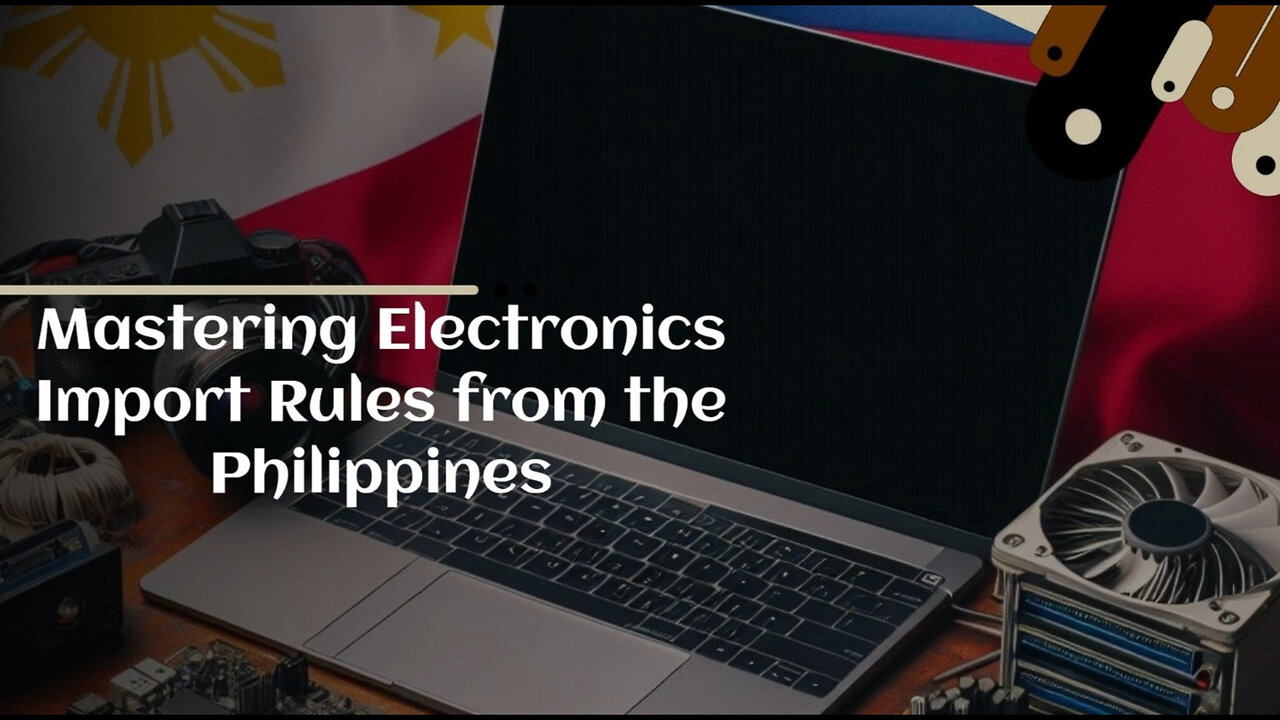Premium Only Content

Smoothly Navigate Customs: Importing Electronics from the Philippines
ISF Entry | Phone: 800-215-1849 | Email: isf@isfentry.com | https://isfentry.com/
In today's video, we delved into the customs regulations for importing electronics from the Philippines. We discussed the key requirement of the Importer Security Filing (ISF), which needs to be submitted to US Customs and Border Protection before the vessel departs from the Philippines. The ISF contains important information about the shipment, such as the seller, buyer, and product description, and submitting it accurately and on time is crucial to avoid delays and penalties.
We also touched upon the importance of having a customs bond, which is a legally binding agreement ensuring that all customs duties, taxes, and fees will be paid. It serves as a guarantee of compliance with customs regulations.
Moving on, we highlighted specific customs regulations related to importing electronics, such as the need for certifications or approvals from regulatory agencies in the United States for certain products. For example, electronics that emit radio frequency signals may need to comply with FCC regulations. We also mentioned the importance of being aware of any restrictions or prohibitions on specific types of electronics, such as counterfeit goods or those infringing on intellectual property rights. Thoroughly researching and understanding these regulations before importing electronics is essential.
We emphasized the significance of proper documentation for customs clearance. It is crucial to have invoices, packing lists, and certificates readily available for inspection by customs authorities. Accurate and complete documentation expedites the customs clearance process and avoids unnecessary delays.
Lastly, we recommended working with a customs brokerage firm experienced in handling electronics imports from the Philippines. They can provide guidance on specific requirements, assist with the customs clearance process, and overcome potential challenges.
In conclusion, importing electronics from the Philippines requires compliance with customs regulations, including the ISF and having a customs bond. Familiarity with certifications, approvals, and restrictions on specific electronics products is crucial, as is ensuring accurate and complete documentation. Partnering with a knowledgeable customs brokerage firm simplifies the process.
#usimportbond #isfcustomsbroker #uscustomsclearing #isfentry
Video Disclaimer Here: This educational content is unassociated with US governmental bodies.
00:17 - The ISF must be submitted to U.S. Customs and Border Protection at least 24 hours before the vessel departs from the Philippines.
1:24 - Customs regulations specific to importing electronics include certifications, approvals, and restrictions on certain products.
2:09 - Proper documentation, such as invoices and packing lists, is essential for customs clearance.
2:31 - Working with an experienced customs brokerage firm can simplify the import process and help navigate any challenges.
-
 1:59:00
1:59:00
Steve-O's Wild Ride! Podcast
3 days ago $32.87 earnedPatrick Bet-David DESTROYS Steve-O's Dad - Wild Ride #252
107K40 -
![[XboxONE] GRINDING 1000g FC24](https://1a-1791.com/video/fwe1/01/s8/1/y/k/I/o/ykIoy.0kob-small-XboxONE-GRINDING-1000g-FC24.jpg) 3:29:15
3:29:15
deathbee
9 hours ago[XboxONE] GRINDING 1000g FC24
68.2K2 -
 1:08:32
1:08:32
Winston Marshall
1 day agoThe HIDDEN Agenda: Congresswoman Hageman UNCOVERS USAID Fraud, Censorship and Human Trafficking
98.7K122 -
 8:16
8:16
CarlCrusher
22 hours agoThe True Story of Stranger Things and the Montauk Project Origins
53.4K11 -
 10:05
10:05
ariellescarcella
23 hours agoNo, You're Not Having A 'Gender Crisis' You're Just Bored
60.9K34 -
 41:08
41:08
The Finance Hub
1 day ago $14.60 earnedBREAKING: DONALD TRUMP JR. SHOCKS THE WORLD!
54.7K96 -
 8:04
8:04
BIG NEM
1 day agoHow Your Mind SHAPES Reality! 🧠 Epigenetics, Psychedelics & Quantum Physics Explained!
58.2K5 -
 33:44
33:44
hickok45
11 hours agoSunday Shoot-a-Round # 270
44.7K20 -
 32:24
32:24
Degenerate Plays
1 day ago $1.27 earnedThe Floating Cuck Chair?! - Sonic The Hedgehog (Sonic Origins) : Part 1
38.2K2 -
 1:12:44
1:12:44
PMG
1 day ago $4.87 earnedSECRETS REVEALED!! What Really Happened To MLK And JFK??!!
32.2K9